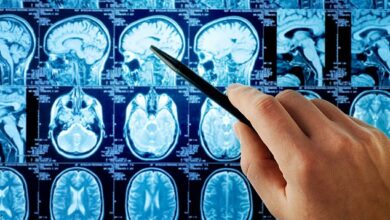Experts claim debilitating side effects of antidepressants are eight times more common than previously thought




Patients who stop taking antidepressants on their own are at far greater risk of debilitating side effects than research suggests, experts said today.
It has long been known that common medications taken by millions of people can potentially cause symptoms such as dizziness, headaches, insomnia and nausea when you stop taking them.
But a large study from June claimed that these withdrawal symptoms were not as dangerous as feared: on average, only one in six people experiences withdrawal symptoms when they stop taking the pills.
And only two to three percent experience serious symptoms, according to results published in The Lancet Psychiatry.
However, researchers from Brazil and the UK today claimed the paper significantly “downplays” the risk, with the figure actually being up to four times higher.

It has long been known that the powerful drugs used by millions of people can potentially cause symptoms such as dizziness, headaches, insomnia and nausea when stopped.

This NHS data shows the number of Britons who have taken each type of antidepressant over the past eight years. The line with the green triangles shows the total number of patients
The use of antidepressants has increased dramatically in recent years, despite growing debate among experts about the drugs’ effectiveness in treating depression.
In the June study, scientists in Germany reviewed 79 studies involving more than 21,000 patients who were prescribed various antidepressants.
They found that 15 percent of users experience one or more complaints that are a direct result of stopping the pills.
Of the 11 individual antidepressants, citalopram, sertraline and fluoxetine – the most commonly used in the UK – had the lowest risk of withdrawal symptoms.
Stopping use of imipramine, paroxetine and venlafaxine was also associated with a higher risk of serious symptoms compared with other antidepressants, the researchers said.
But Professor John Read from the University of East London and Dr James Davies from the University of Roehampton claimed today that ‘at least half of people suffer withdrawal symptoms’.
Write in The Lancet Psychiatrythey said that the researchers “based their own estimates primarily on studies that lasted an average of 25 weeks, with almost half of the included studies only assessing antidepressant use for up to 12 weeks.
“However, the typical antidepressant user takes these medications for several years.”
They added: ‘While future research will reveal which of the two estimates is more accurate, somewhere between 1.2 million (15 per cent) and 4.7 million (56 per cent) of the 8.7 million people prescribed antidepressants in England alone last year will experience withdrawal symptoms when trying to reduce or stop taking antidepressants.
‘NHS England recommends that services be developed to help people come off psychiatric drugs safely. But by minimising withdrawal symptoms, you reduce the chance of this happening.’
Previous research from 2019 by the duo also found that 56 percent of patients may experience such side effects.
In a second criticism, scientists from the Federal University of Ceará in Brazil said the study also has “certain flaws,” including the “short observation period” to assess withdrawal symptoms.

Singer Lewis Capaldi opens up about his battle with the side effects of antidepressants and describes issues with sexual dysfunction.
In addition, nearly a third of the 79 studies analyzed did not use “validated instruments” to assess antidepressant withdrawal symptoms, they added.
“The occurrence of antidepressant withdrawal symptoms is a relevant area of research, but the extent to which these symptoms occur remains unclear,” said the researchers said.
The latest NHS data shows that a record 8.7 million people in England, around 15 per cent of the total population, are now taking mood-enhancing drugs.
It is a 26 percent increase from the 6.8 million people who were taking the medication eight years earlier.
In some parts of the country, the percentage of people using antidepressants is as high as one in four.
Women aged 55 to 59 formed the largest group of drug users, accounting for about one in twenty of the total.
However, medications such as antidepressants can also be prescribed for other conditions and these are then included in the data.
These include irritable bowel syndrome (IBS) and pain relief. Sometimes they are also prescribed to treat pain.
Selective serotonin reuptake inhibitors (SSRIs) remain the most commonly prescribed class of antidepressants in the UK, a position that has been maintained for many years.
Common SSRIs prescribed in the UK include citalopram, fluoxetine and sertraline, sometimes also known by the brand names Cipramil, Prozac and Lustral.
However, researchers have linked its use to long-term and even permanent sexual dysfunction.
The NHS has warned that side effects including loss of libido and orgasm, low sperm count and erectile dysfunction ‘may persist’ after taking the drugs. Patients have described feeling ‘hollowed out’ and relationships destroyed by taking them.
Most doctors and the NHS consider the use of SSRIs for depression, particularly in persistent or severe cases, to be useful given the debilitating nature of the condition.
Large-scale analyses have shown that the pills reduce symptoms of depression in 40 to 50 percent of people who take them.
The libido-reducing effects of SSRIs were put in the spotlight last year by Scottish singer Lewis Capaldi.
In a Netflix documentary where he deals solely with his anxiety, he talks about the effect it has on his sexual health.
“They don’t really do anything except keep me from getting a hard-on to save my life,” he said.




